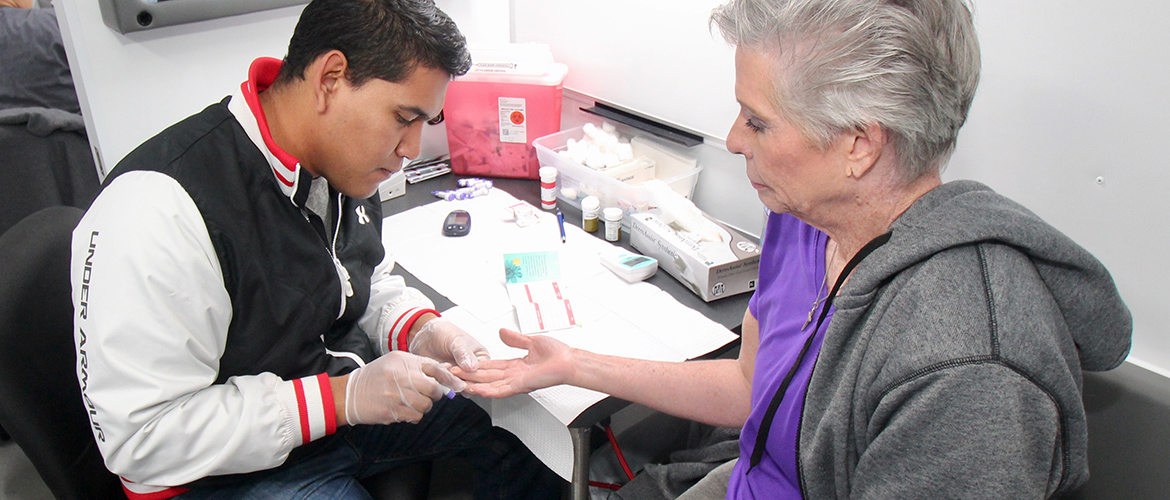As the fifth largest state by square miles, New Mexico is home to a population spread over a vast area.
About 686,000 people live in rural parts of the state, according to federal data.
Living in rural areas often comes with greater health disparities. Rural Americans have an increased risk for developing heart disease, chronic lower respiratory disease and other conditions.
To help more New Mexicans in underserved rural areas get preventive health care, Health Care Service Corporation added a second mobile health clinic last year to its long-running Care Van program in the state.
The Care Van program provides mobile health clinics to help improve access to preventive care across the state. HCSC's plan in New Mexico introduced its first Care Van in 2006.
With two Care Vans on the road, one can serve people in central New Mexico, while the other brings services to people hundreds of miles away in less populated areas of the state.
As a result, the program is reaching additional rural and tribal areas. For example, the Care Van has served people in Counselor, a small, rural community in Sandoval County. The Care Van also worked with First Nations Community Healthsource to provide screenings and health education in Gallup, near the Arizona border.
“It’s about all citizens of the state who need access.”
“When the Care Van goes to a senior center, a school or a community center, several community partners come together to offer services to everyone who attends,” said Dr. Eugene Sun, vice president and chief medical officer for the New Mexico Plan. “It’s about all citizens of the state who need access.”
Many factors in people’s lives may prevent them from getting health care, and the Care Vans help bridge these gaps. With this innovative strategy, HCSC is continuing to grow partnerships in communities that help New Mexicans lead healthier lives.
The Care Van program contracts with independent health care providers with diverse specialties, including vision and dental. They do many types of exams and evaluations and also give immunizations. All services are provided to community members at no charge.
After adding the second Care Van, the program more than doubled its ranks of contracted providers. They administered more than 6,700 medical services and screenings in 2018 — a 67% increase from the previous year.
Among the Care Van program’s community partners is Southern New Mexico Diabetes Outreach (SNMDO), which focuses on diabetes education, prevention and management. With the Care Van, SNMDO does cholesterol and blood glucose screenings, blood pressure testing, and body mass index (BMI) measurements.
“We do screen almost 1,000 people a year, and we go to about 30 different locations,” said June Donohue, SNMDO’s executive director. “About half of those are in the Care Van.”
The New Mexico Hispanic Medical Association (NMHMA) has used the Care Van to provide Alzheimer’s screenings, well-child checks and other services at its annual Feria de Salud: A Day of Free Healthcare.
The annual health fair has reached about 10,000 medically uninsured and underserved people.
“Most of these people are not seeking health care because of cost or lack of insurance,” said Dr. Anthony Vigil, a family practitioner and a board member of the NMHMA. “The Care Van is crucial for us.”

